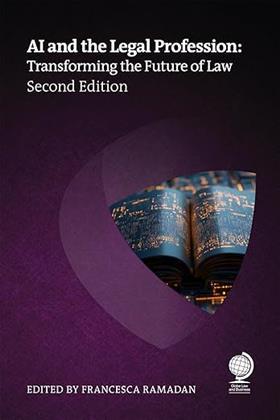AI and the Legal Profession: Transforming the Future of Law (second edition)
Editor: Francesca Ramadan
£159, Globe Law & Business
★★★✩✩
Most readers of the Gazette will be aware of the depressing saga of R (on the application of Ayinde) v Hackney London Borough Council, in which a junior barrister cited fictitious AI-generated authorities in her submissions. It was a stark illustration of over-reliance on an imperfect technology. Nonetheless, it is clear that AI is not going away from the legal profession, meaning books such as this new volume are highly relevant. In a striking example of the pace at which AI is developing in relation to law, this is the second edition, appearing not even three years after the first.
The book is composed of 12 chapters. The first concerns AI’s ‘partnership’ with humans in reshaping legal services – not just what AI can bring to human lawyers, but what human lawyers might bring to AI. The second chapter is also somewhat theoretical, looking at how AI is changing legal thinking, while the third looks at ethical challenges.

Later chapters deal with more practical issues, including implementing and updating legal AI systems, training on the use of AI, regulatory matters, including the EU’s Artificial Intelligence Act, and security concerns regarding client data. There are serious issues to be confronted in each of those areas, and a great deal of hitherto unimagined training will be needed for lawyers to master any of them.
The book makes clear that how a person uses AI is as important as the AI’s capabilities. It further shows how data security with AI will be much more challenging than the days when client details were stored in a lockable room or a fire-walled computer drive. The principle may be the same – ensuring sensitive client information is only given to internal AI systems – but that might limit what AI can do in a way not relevant to traditional legal information databases.
For the foreseeable future at least, one suspects it will be necessary to treat AI as a junior associate, always requiring supervision and feedback. The difference being that it will never be promoted or allowed to work unsupervised – but, equally, it will also never complain about its pay and conditions. One is left wondering how much time will pass before the next edition of this valuable work is required – and, for that matter, how much of the next edition will be written by AI and read by other AIs.
James Wilson FRHistS is an independent legal author. His most recent book is Lord Denning: Life, Law and Legacy































No comments yet